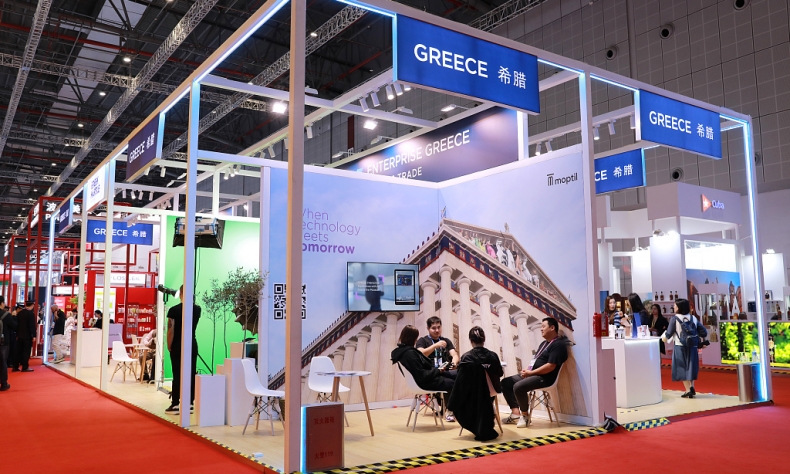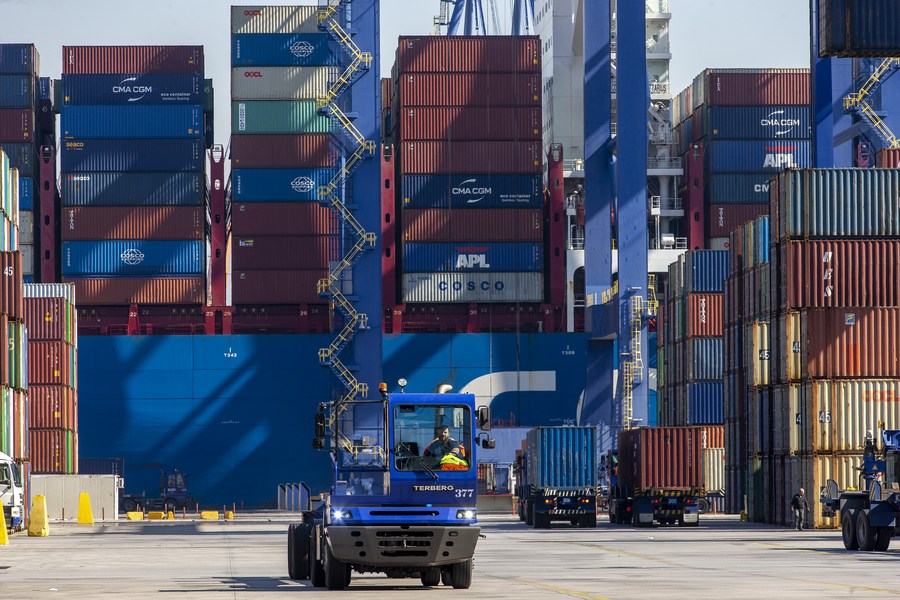Strengthening Sino-Greek Ties Through Closer Cooperation

The more Europe engages with China and vice versa, the more likely a minimum degree of coordination can be secured in world politics. Greece acknowledges this reality and is prepared, within its limited capacity amid international antagonism, to promote the need for cooperation.
Greek Prime Minister Kyriakos Mitsotakis concluded his official visit to China a few days ago. Greece’s economy has already acquired the so-called investment grade, a status recognized by international rating agencies, including those from China. This upgraded assessment opens additional opportunities for economic collaboration. For international investors, certainty and stability are crucial, often influencing their outlook on future prospects. Mitsotakis envisages Sino-Greek economic relations becoming stronger.
Among other things, Greece is once again represented at the China International Import Expo (CIIE) in Shanghai. Seeking to increase its exports to China, Greece views the CIIE as a good opportunity to promote its quality products to the Chinese market. According to Eurostat data, Greek exports to China amounted to 400 million euros ($430 million) last year. There is certainly room for improvement.
The investment by Chinese maritime giant COSCO Shipping in the Port of Piraeus remains the emblematic project of Sino-Greek collaboration in the context of the Belt and Road Initiative. Since COSCO took over management of Piers II and III in 2009 and became the principal shareholder of the Piraeus Port Authority in 2016, its tasks and responsibilities have expanded significantly. The Port of Piraeus has emerged as a key transshipment hub and one of the biggest harbors in the Mediterranean.
Current Sino-Greek discussions are focused on transport logistics, particularly the movement of TEUs from Piraeus to other countries in northern Europe, the Balkan Peninsula, and Central and Eastern Europe. The Greek railway network has faced challenges, notably the devastating train accident in the Tempi area in March and the September floods in Thessaly. As a result, services were seriously disrupted, necessitating the use of alternative routes.

Additionally, the Greek and Chinese sides are engaged in talks about the future development of the Port of Piraeus. Delays in some construction works were noted in previous years, but it seems that most bureaucratic and legal obstacles have been cleared after compromises and necessary adjustments. COSCO is expected to invest heavily in the cruise sector, which could significantly increase the number of visiting tourists. Greece and China intend to strengthen flight connectivity to facilitate this process.
In parallel with tourism, cultural and educational activities are on the agenda. After the hiatus caused by the COVID-19 pandemic, physical exchanges will promote mutual learning in the coming years. In this manner, the two countries are arranging details for the organization of exhibitions that will promote Greek civilization in China and Chinese civilization in Greece. A few weeks before Mitsotakis, Culture Minister Lina Mendoni traveled to China to advance bilateral dialogue in her field. In a similar vein, various Chinese university presidents visited Athens to meet with their Greek counterparts and explore joint education programs and research.
Finally, Greece is keen to act as a bridge between Europe and China. Prime Minister Mitsotakis reiterated this standard Greek position while in Beijing. In a changing world, China’s role is becoming critical in addressing a myriad of challenges. The more Europe engages with China and vice versa, the more likely a minimum degree of coordination can be secured in world politics. Greece acknowledges this reality and is prepared, within its limited capacity amid international antagonism, to promote the need for cooperation.
George N. Tzogopoulos is a columnist with China.org.cn.
 Facebook
Facebook
 Twitter
Twitter
 Linkedin
Linkedin
 Google +
Google +










